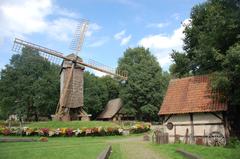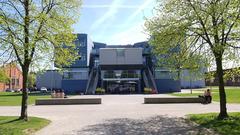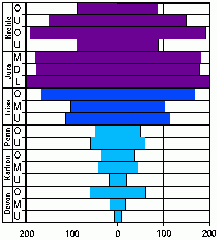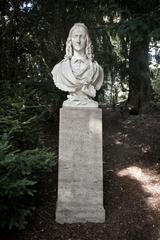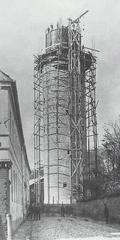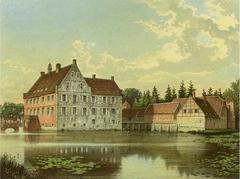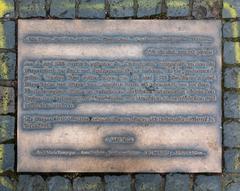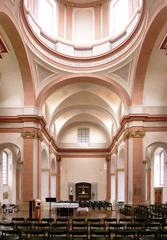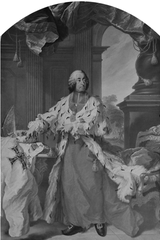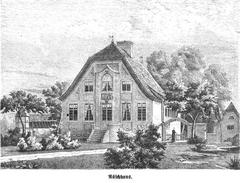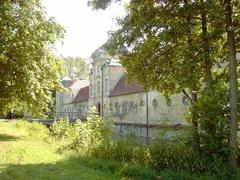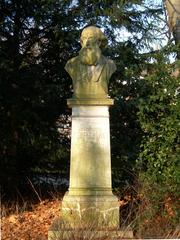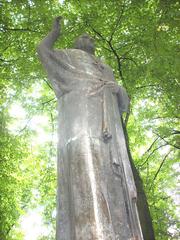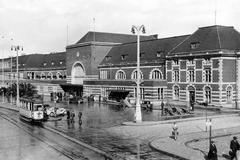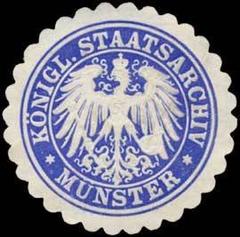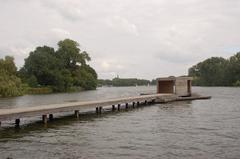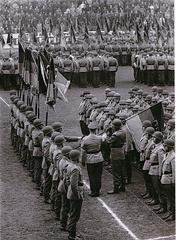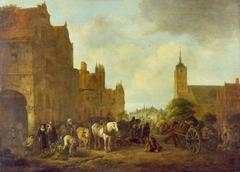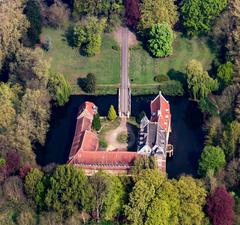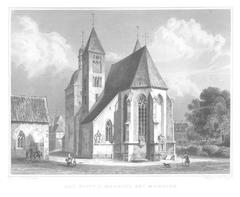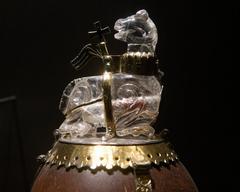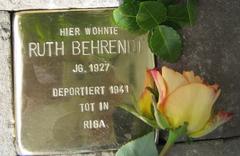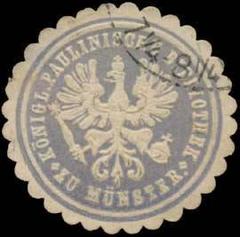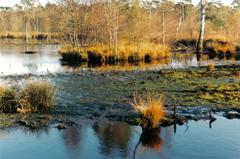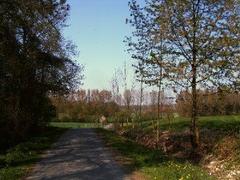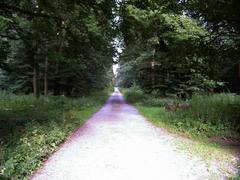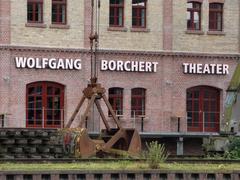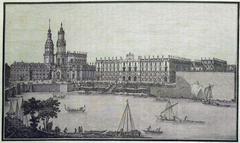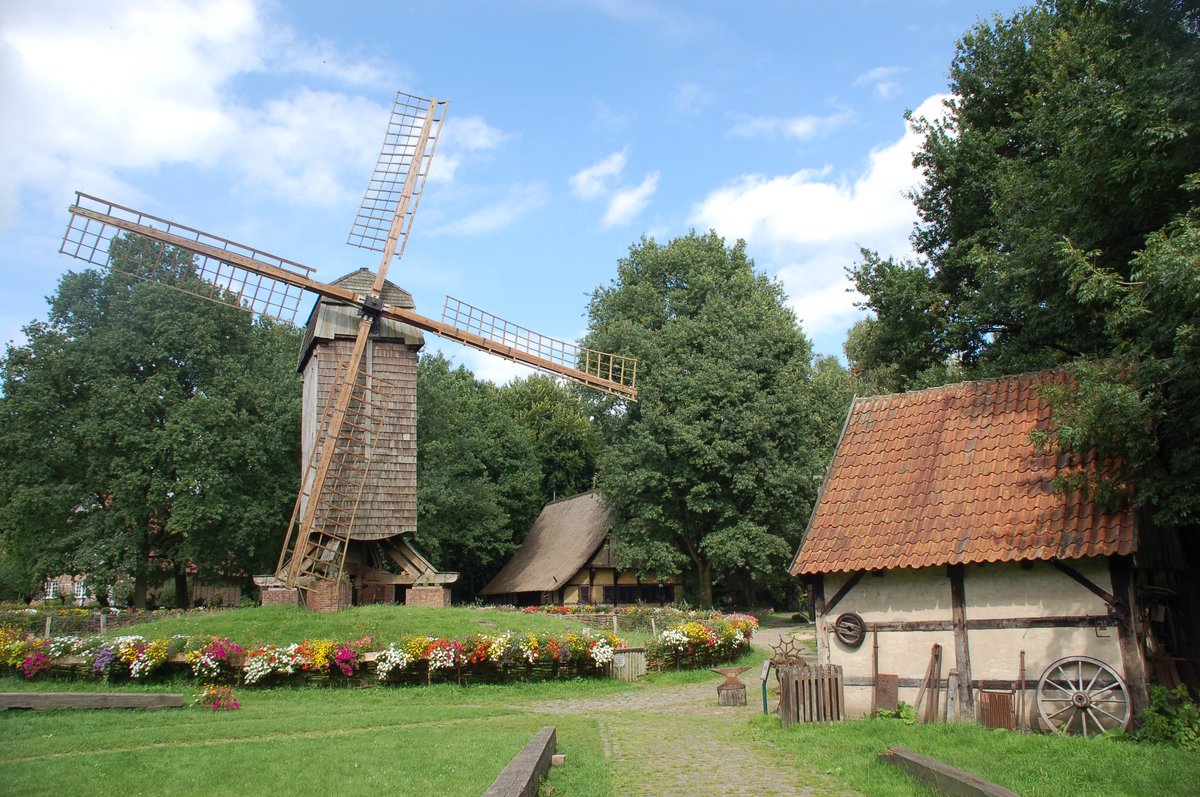
Bockwindmühle Münster, Germany: Visiting Hours, Tickets, and Historical Sites Guide
Date: 14/06/2025
Introduction
Nestled in the culturally vibrant city of Münster, Germany, the Bockwindmühle at the Mühlenhof Open-Air Museum stands as a testament to centuries of rural ingenuity and craftsmanship in Westphalia. Originally constructed in 1748 in Emsland and relocated to Münster in 1961, this traditional post mill is the architectural and symbolic heart of the museum. Visitors to the site can immerse themselves in the rich heritage of the Münsterland, exploring not only the windmill but also a collection of around 30 meticulously preserved historic buildings that collectively recreate 17th- to 19th-century rural life.
The museum offers engaging programs—ranging from live milling demonstrations to interactive workshops and seasonal festivals—making it a destination for families, students, and history enthusiasts. With accessible ticket pricing, thoughtful accommodations, and resources such as guided tours in multiple languages and digital audio guides, the Bockwindmühle is designed to be welcoming and educational for all.
Plan your visit to experience the unique blend of history, culture, and hands-on learning that this Münster historical site provides. For up-to-date details, visitors are encouraged to refer to the official museum websites and explore digital resources such as the Audiala audio tour app.
Table of Contents
- Historical Overview: Origins and Relocation
- Visiting Information: Hours, Tickets, and Accessibility
- Architectural Features and Technical Insights
- Preservation and Heritage Status
- Educational Programs and Visitor Activities
- Events and Community Engagement
- Travel Tips and Nearby Attractions
- Frequently Asked Questions (FAQ)
- Contact and Further Information
- Summary and Visitor Tips
- Sources
Historical Overview: Origins and Relocation
A Symbol of Westphalian Heritage
Bockwindmühlen, or post mills, are among the oldest windmill types in Central Europe, with a design concept dating back to the 12th century (wiki.genealogy.net). These mills feature a rotating mill body mounted on a central post (“Bock”), allowing them to face changing wind directions—a significant innovation for efficient grain milling.
The Bockwindmühle at Mühlenhof was originally erected in 1748 on the Raming-Freesen farm in Oberlangen, Emsland. In 1961, the structure was carefully dismantled and reassembled at the museum, where it became the iconic centerpiece. Positioned atop a manmade hill (“Mühlenknapp”), the mill could harness optimal wind exposure and, at its peak, grind up to 2,500 kg of grain per day (muensterland.com).
Visiting Information: Hours, Tickets, and Accessibility
Opening Hours:
- April–October: Tuesday–Sunday, 10:00 AM – 6:00 PM
- November–March: Tuesday–Sunday, 10:00 AM – 4:00 PM
- Closed Mondays (except public holidays; always verify on the official website).
Ticket Prices:
- Adults: €6 – €7
- Reduced (students, seniors): €4
- Children (6–14): €2
- Family and group rates available; children under 6 enter free.
- Tickets can be purchased onsite or online (museen-in-muenster.de).
Accessibility:
- The museum grounds are largely wheelchair-accessible with paved paths and ramps.
- Due to the historic structure, the windmill’s upper levels are not fully accessible, but ground floor and exterior access are available.
- Assistance and alternative viewing options can be arranged upon request.
Location:
- Theo-Breider-Weg 1, 48149 Münster, Germany
- GPS: 51.9497° N, 7.5986° E
- Accessible via public transport (bus lines 10, 11) and by car (on-site parking available) (Quermania).
Architectural Features and Technical Insights
The Bockwindmühle exemplifies traditional German post mill construction, with a superstructure (“Kasten”) built primarily from oak and other durable woods. The entire mill body rotates on a central post to face the wind, operated manually by a tailpole (“Stert”). The wooden framework, clad in tarred planks and topped with a steep shingle roof, protects the machinery and grain.
Technical Specifications:
- Four large sails (“Flügel”) capture wind and turn a horizontal windshaft.
- A brake wheel and vertical shaft transmit power to the millstones (sandstone or French burr, 1.2–1.5 m in diameter).
- The mill’s interior includes grain cleaning, sifting equipment, and storage.
- During demonstrations, an electric motor may be used to preserve original wooden components (whichmuseum.com).
Preservation and Heritage Status
The Bockwindmühle at Mühlenhof is a meticulously reconstructed monument, utilizing traditional carpentry and authentic materials. Regular inspections safeguard against wood rot, insect damage, and mechanical wear, with repairs adhering to historical methods. The windmill is officially protected as a heritage site in North Rhine-Westphalia, ensuring ongoing conservation and educational use (de.wikipedia.org).
Educational Programs and Visitor Activities
Guided Tours and Demonstrations:
- Offered in German and, upon request, in English.
- Live milling demonstrations (weather permitting) and traditional crafts workshops.
- Interactive school programs: Students experience “old-time” lessons in a reconstructed 19th-century schoolhouse.
Family and Group Activities:
- Hands-on workshops: Fabric printing, blacksmithing, traditional baking.
- Special children’s programs and birthday party packages.
- Intergenerational learning activities, such as deciphering old German handwriting.
Digital Resources:
- QR codes on exhibits provide multimedia insights.
- The Audiala app offers audio tours in multiple languages.
Events and Community Engagement
The museum hosts a vibrant calendar of events:
- Deutscher Mühlentag (German Mill Day): Pentecost Monday; workshops, art projects, and demonstrations.
- Traditional Handicrafts: Spinning and lace-making, third and fourth Sundays monthly.
- Historic Baking: Fresh bread and pastries from the original bakehouse.
- Carriage Rides: Daily from 11:00 AM.
- Storytelling and Festivals: Regular storytelling sessions, midsummer, and Christmas markets (Westfälische Nachrichten).
The non-profit association De Bockwindmüel e.V. supports maintenance and educational outreach.
Travel Tips and Nearby Attractions
- Best Times: Spring and autumn for mild weather and seasonal events.
- Photography: The “Mühlenknapp” hill offers panoramic views of the mill and museum grounds.
- Nearby Sites: Münster’s Lambertikirche, Prinzipalmarkt, Pablo Picasso Museum.
- Dining: Café Dorfkrug serves regional cuisine and homemade cakes; picnic areas available.
- Museum Shop: Regional crafts and books make great souvenirs.
Practical Tips:
- Dress for the weather; much of the museum is outdoors.
- Dogs are welcome (leash required).
- Book tours in advance, especially during peak times.
- Review the event calendar for special programs.
Frequently Asked Questions (FAQ)
Q: What are the opening hours?
A: Tuesday–Sunday, 10:00 AM–6:00 PM (April–October); 10:00 AM–4:00 PM (November–March). Closed Mondays except public holidays.
Q: How much do tickets cost?
A: Adults €6–€7; reduced rates for children, students, seniors, and groups; children under 6 free.
Q: Is the site wheelchair accessible?
A: Most outdoor areas and ground floors are accessible; upper windmill levels are not.
Q: Are guided tours available in English?
A: Yes, upon request.
Q: Are there activities for children?
A: Yes, including hands-on workshops, school reenactments, and special events.
Contact and Further Information
For bookings and inquiries:
- Phone: +49 251 981200
- Email: [email protected]
- Official website
Summary and Visitor Tips
The Bockwindmühle at Münster’s Mühlenhof Open-Air Museum is a living monument to Westphalian rural history, offering immersive educational programs, vibrant community events, and accessible facilities for all visitors. Its unique post mill design, preserved through careful restoration, continues to inspire curiosity about traditional engineering and agrarian life. With seasonal festivals, interactive workshops, and digital enhancements like audio guides, the museum ensures a memorable and meaningful experience for families, students, and travelers alike.
Plan your visit by checking current hours and tickets on the official museum website, and enrich your journey with resources such as the Audiala app for self-guided tours. Engage with the museum’s social media channels for event updates and visitor tips, and explore related cultural attractions throughout Münster.
Sources and Further Reading
- Münsterland Tourism: Open-Air Museum Mühlenhof
- WhichMuseum: Mühlenhof-Freilichtmuseum Münster
- Mühlenhof Münster: Events and Visitor Information
- Quermania: Freilichtmuseum Mühlenhof Münster
- Westfälische Nachrichten: Events in the Münsterland
- Wikipedia: Mühlenhof-Freilichtmuseum Münster
- Genealogy Wiki: Bockwindmühle
